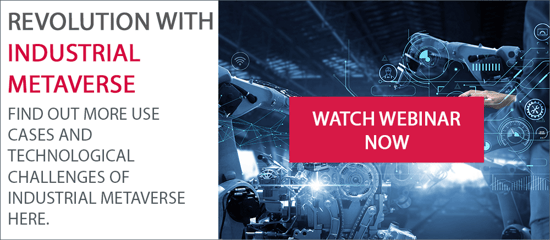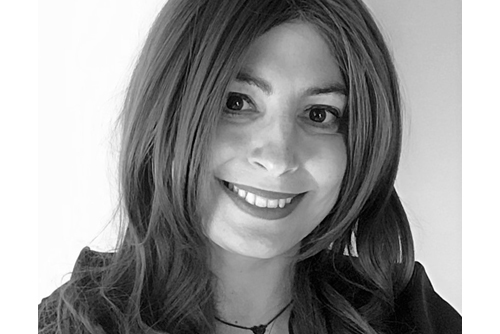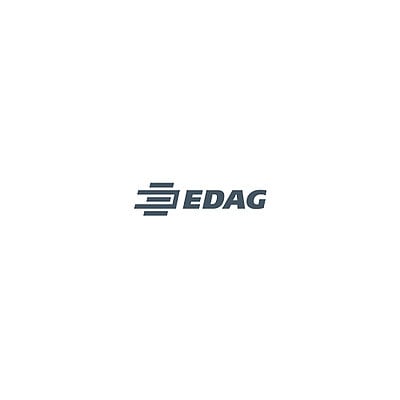Digitalization in cities and industry is bringing the networking of data to the fore to generate new intelligent solutions. By integrating digital twins, IoT technologies and smart data analytics, advanced data platforms are creating the foundation for connected, efficient and sustainable cities and industries. EDAG develops scalable, interoperable data platforms that enable seamless connections between the physical and digital worlds, optimizing processes in smart cities and industry.
Interoperable data platforms form the backbone of data-driven activities: they support the development of specific applications, digital twins and ecosystems through to the urban and industrial metaverse. The data flows into a central data platform - the "digital brain" - which stores all relevant information in a structured manner and makes it available for downstream processes.
Data platforms and digital twins: the basis for the industrial metaverse
At Industrial Metaverse, digital twins mirror and link precise data from real machines, factories, buildings, networks and transportation systems. Companies can use the data collected on the data platforms to monitor, analyze and optimize product processes in real time and predict errors. This opens up a wide range of applications, for example for product development, supply chain management, maintenance and monitoring, repair, training and education.
Smart cities and the role of digital twins and data platforms
The urban metaverse, also known as the smart city metaverse, is less well known. It integrates technologies into the urban fabric to improve urban planning, infrastructure, citizen services and quality of life. Digital twins and data platforms also play a crucial role in the urban metaverse. They create virtual representations of physical infrastructures, buildings and systems and enable simulations, analyses and optimizations before changes are implemented in the real world. They help cities and municipalities to make more informed decisions and save costs.
The urban metaverse opens up a wide range of potential applications, for example in traffic control, waste disposal, green space maintenance, energy supply and even public safety or early weather warning systems. Traffic systems, for example, can be controlled using real-time data and sensor technology to minimize traffic jams and make public transport more efficient.
The urban metaverse is still at an early stage of exploration. According to ABI Research, nearly 700 cities will have some form of metaverse infrastructure in place by 2030, often as an extension of existing urban digital twin platforms and solutions.
EDAG CityBot: An innovative ecosystem for the smart city
As an experienced technology partner, EDAG develops powerful, scalable digital twins and interoperable data platforms that support companies and cities in exploiting the potential of the industrial metaverse and the urban metaverse. Using the example of the EDAG CityBot ecosystem , we provide an insight into technologies and possible use cases in the smart city. 
The EDAG CityBot is a sophisticated ecosystem - a network of interconnected digital twins that come together in a data platform. The networked, multifunctional, highly automated robotic vehicles interact with each other as well as with the urban infrastructure and users. The vehicles use collective data and knowledge to perform different tasks efficiently. With various add-on modules, they can be configured as a passenger cell, cargo carrier, city cleaning device or for green space maintenance. The modular design enables flexible adaptation to changing requirements.
EDAG 360-degree data platform: The backbone for efficient management and simulation in real time
To manage and control these highly automated robot fleets, EDAG has developed a central data platform that maps and simulates the various digital twins of the CityBot ecosystem. The CityBot ecosystem comprises digital twins of the real operating environment, the CityBots themselves, the weather and the user.
One example is the CityBot with passenger cell. The digital twins simulate real-time data to optimize route planning and order management. The CityBot data platform receives the data from the various sources, processes it intelligently and makes it available to the user groups as required. The intelligent traffic management system takes into account road closures and obstacles such as parked vehicles. In complex situations, the CityBot can be controlled manually by a teleoperator. Real-time cameras on the CityBot and at the operating site provide support. The CityBot sends a signal to the control center, where all relevant data from the connected digital twins is aggregated, correlated and displayed on an employee's dashboard. If necessary, the employee in the control center makes the data available to an operator who resolves the situation manually.
Apps can also be used, individually developed for customers' work and passenger transport orders. 
Scalable platform and generative design for maximum efficiency
In order to keep the development costs for CityBots or new modules low, EDAG relies on generative design. This automated, continuous development process, also known as "Closed Loop Engineering" , adapts components precisely to loads and areas of application. The development team specifies requirements, objectives and preferred materials and manufacturing processes. The generative engine then automatically creates a design suitable for production, which serves as the starting point for further development work. This process includes live data acquisition, automated optimization and flexible production. The real-time data from operation is continuously fed into the optimization and is quickly implemented in a flexible production environment.
In addition, the data platform receives sensor data from the CityBot in order to predict upcoming maintenance tasks using artificial intelligence (AI) . This helps to avoid breakdowns and increase the availability of the CityBot ecosystem. Business intelligence (BI) tools such as Grafana evaluate the data, show correlations and KPIs and improve the system. 
Event-driven Architecture and open source technologies
The EDAG 360-degree data platform uses an event-driven architecture with microservices. It is based on the free software Apache Kafka and enables the reactive processing of data streams. The open source system Kubernetes ensures the scalability and decoupling of the individual services. This means that events and large volumes of data can be processed in real time and changes can be responded to quickly, while the data platform remains flexible and fault-tolerant.
Based on the data received from 3rd party applications and connected sensors, AI models are trained to provide precise predictions and recommendations for optimizing the system, e.g. route optimization and predictive maintenance.
To ensure interoperability with various IoT devices and services, EDAG relies on FIWARE, an open source technology that provides standardized interfaces. This simplifies communication and data integration, while modular components allow flexible adaptation to specific requirements. Support from the active FIWARE developer community continuously promotes innovation and improvements to the data platform.
Established protocols such as ROS2, LoRaWAN and MQTT are used to interact with the sensors, actuators and third-party systems.
Example applications EDAG CityBot: resource-efficient irrigation and waste disposal 
Image Source: Adobe Stock
The EDAG CityBot ecosystem enables the needs-based irrigation of green spaces through the use of digital twins of green spaces and trees. They take into account parameters such as the plants' water requirements using installed soil moisture sensors. The weather digital twin measures the current weather conditions. Based on the data, the platform determines which green spaces and trees need how much water and which irrigation route is most efficient. In this way, water is used in a resource-saving manner, the health of the plants is promoted and costs for water and operation are reduced. In addition, precise irrigation contributes to the sustainable use of urban resources and supports the ecological development of the city. Well-maintained green spaces beautify the cityscape and increase the quality of life for residents by creating pleasant and attractive places to spend time.
Another option is smart waste disposal. Fill level sensors in waste containers trigger on-demand emptying. The CityBot only empties full containers on its route and leaves empty containers untouched.
Conclusion: Intelligent, sustainable solutions for cities and industry thanks to digital twins, advanced data platforms and innovative technologies
The development of digital twins and advanced data platforms as well as the use of AI and IoT enable solutions for more sustainable and efficient cities and industries. Virtual simulations in urban areas, such as infrastructure, traffic and resource management, and in industry help to identify and solve problems at an early stage. This leads to more efficient and sustainable development.
For city administrations and industries, it is advisable to work with technology integrators to bring together ideas, skills and technologies. The initial focus should be on digital twins and ecosystems that are later brought together in the urban or industrial metaverse. The more cities and industries explore and implement these technologies, the greater the potential for innovation and change.
EDAG offers cities and industries the technological tools and expertise to take advantage of these technologies and concepts. The EDAG CityBot ecosystem is an example of such innovative solutions.
If you have any further questions on this topic and would like to learn more, then talk to Emma Nau, project manager of production IT at EDAG Production Solutions or register for our free webinar recording “Industrial Metaverse - Understand, build, use”.





